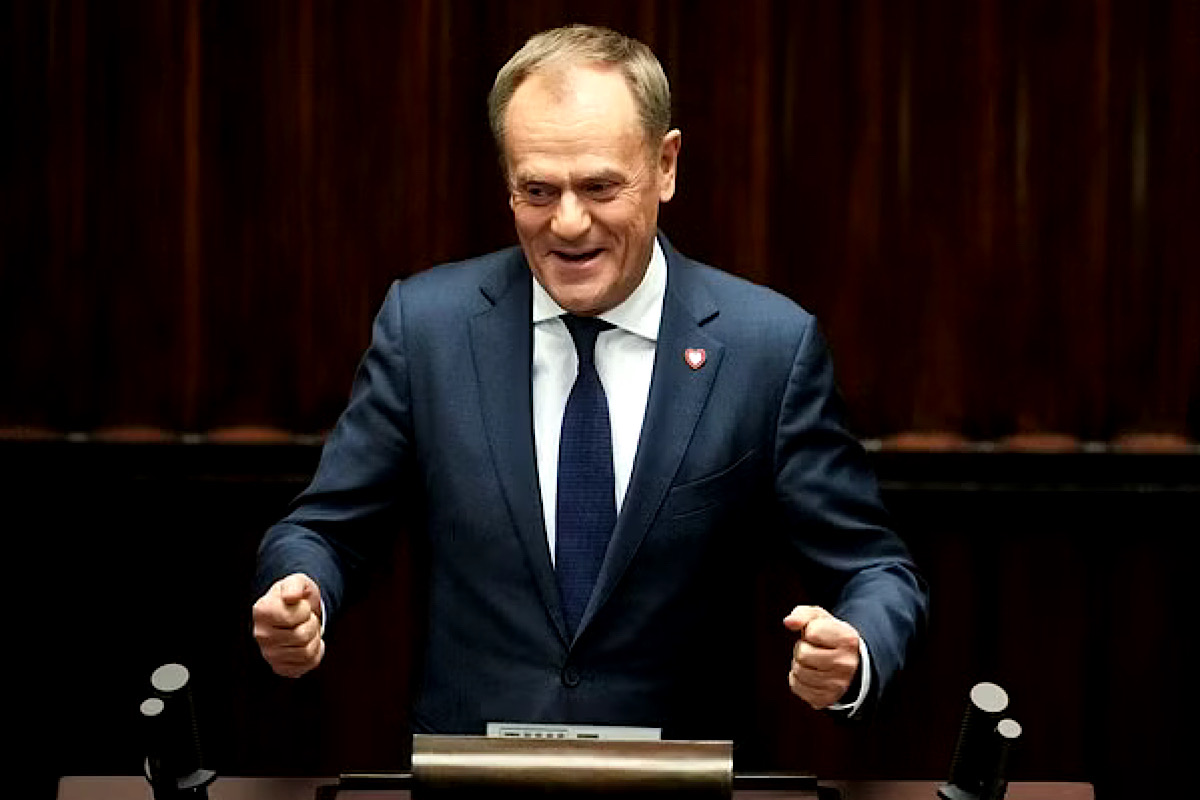In a historic move, Poland’s Parliament has signalled the end of an eight-year nationalist rule, ushering in a new era under the leadership of Mr Donald Tusk. This not only marks a departure from the policies of the Law and Justice (PiS) party but sets the stage for a potential restoration of good relations with the European Union (EU). The parliamentary vote, which saw Mr Tusk secure 248 in favour to 201 against, reflects a pivotal moment for Poland. Mr Tusk, a former European Council president, brings a wealth of experience and a commitment to mend strained ties with the EU. The promise to unlock frozen EU funds hangs in the balance, a crucial step for a nation grappling with economic challenges exacerbated by the dispute with Brussels.
The defeat of former Prime Minister Mateusz Morawiecki, coupled with Mr Tusk’s ascent, reflect a desire for change that the Polish electorate expressed in recent Parliamentary elections. The PiS party, despite its nationalist rhetoric and economic achievements, faced criticism for undermining judicial independence, manipulating state-owned media, and fostering prejudice against minorities. The personal animosity displayed by PiS leader Jaroslaw Kaczynski towards Mr Tusk adds a layer of complexity to this political shift. Accusations of being a “German agent” reveal the deep-seated tensions that have characterised Polish politics, with Mr Tusk being painted as Berlin’s supposed stooge during the election campaign. While Mr Tusk’s supporters celebrate the dawn of a new era, challenges loom on the horizon.
Advertisement
The recent ruling by Poland’s Constitutional Tribunal, declaring judicial reform legislation unconstitutional, highlights the intricate path Mr Tusk must navigate. Judicial reforms are a prerequisite for unlocking EU funds, and the presence of judges appointed under PiS’s contentious overhaul adds a layer of complexity. Moreover, the veto power held by President Andrzej Duda, a PiS ally, could pose additional hurdles to the ambitious agenda laid out by Mr Tusk. The delicate balance between meeting EU demands and maintaining domestic stability will undoubtedly test Mr Tusk’s acumen. The outpouring of congratulations from abroad, including European Commission President Ursula von der Leyen and Ukrainian President Volodymyr Zelenskiy, underscores the international significance of Poland’s political realignment.
Mr Tusk’s experience and commitment to European values position him as a key figure in shaping the future course of the bloc. Poland’s record voter turnout in the October election, reaching 74 per cent, reflects a nation eager for change. The symbolic act of citizens queuing for hours to cast their votes signifies a collective determination to shape the destiny of their country. The charismatic Parliament speaker, Szymon Holownia, has also played a role in sparking public interest. His witty demeanour during debates has resonated with viewers, drawing attention to the inner workings of Parliament. The journey ahead is fraught with obstacles, but the resilience and determination demonstrated by the Polish people suggest a collective commitment to forging a new path.











